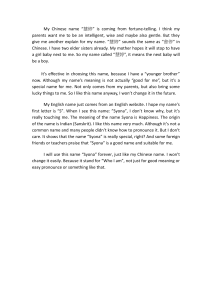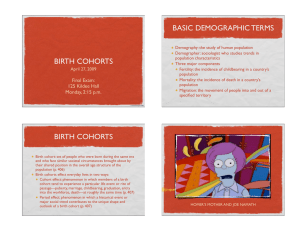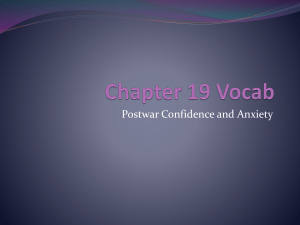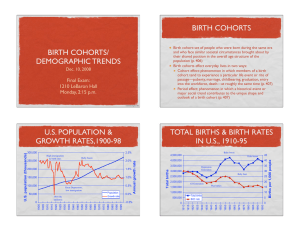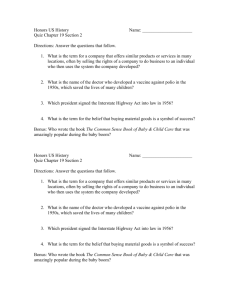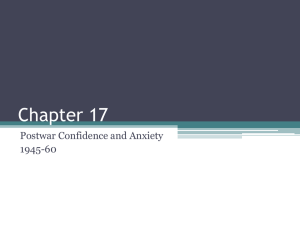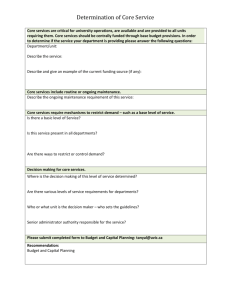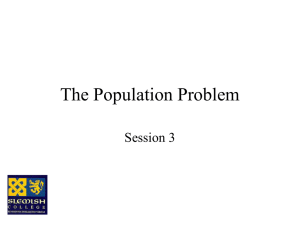AP HUMAN GEOGRAPHY CH. 7 REVIEW
advertisement
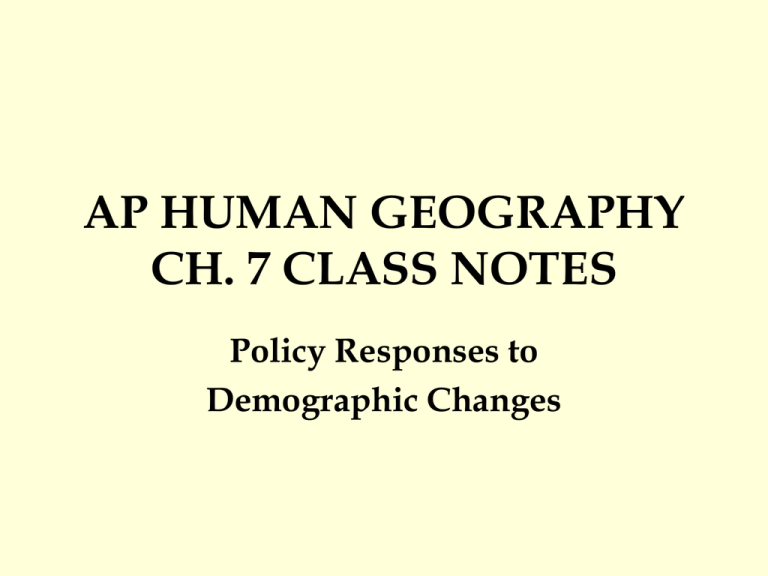
AP HUMAN GEOGRAPHY CH. 7 CLASS NOTES Policy Responses to Demographic Changes National Population Policies • 1. EXPANSIVE POPULATION POLICIES- • Raise Natural Increase Rate • Encourage larger families • BABY BOOM – Individuals born in USA 1946-1964. • Peace, Stability, Education, Jobs (Men) • BABY BUST – In 1960s & 70s fertility rates dropped as women from Baby Boom Generation sought higher education & competitive jobs 2. EUGENIC POPULATION POLICIES – Favor one racial / cultural sector of population Nazi Germany – “The Final Solution” 3. Restrictive Population Policies • Legislation / programs to reduce Natural Increase Rate • Restrict large families • Restrict gov’t services CHINA • Under Mao Zedong, Communist Chinese Society encouraged large families (until 1976) • 1979 – China’s One Child Policy Some Rules • Forced families to register births • After 1 child – forced to use contraception • If 2nd child born – one parent had to be sterilized Reactions • PEOPLE (farming families need bodies to farm, so they defy the gov’t) • Kept pregnant women out of sight • Did not register births • Dodged gov’t inspectors • GOV’T ( harsh consequences on people who violated rules ) • Fired from jobs • Land taken away • Women arrested and under forced abortion • In first 6 years – 70 million abortions • In 1980s – 20 million people sterilized annually (3:1 women to men) USA Immigration Laws • USA 1882 – Chinese Exclusion Act • Designed to restrict Chinese immigrants to USA • 1924 – National Origins Act • European Immigration shifts from N. Europe to SE Europe • Act set up QUOTA SYSTEM limiting number of immigrants per country Paul Ehrlich – USA The Population Bomb (1968) • “A cancer is an uncontrolled multiplication of cells; the population explosion is an uncontrolled multiplication of people. Treating only the symptoms of cancer may make the victim more comfortable at first, but eventually he dies often horribly. A similar fate awaits a world with a population explosion if only the symptoms are treated. We must shift our efforts from treatment of the symptoms to the cutting out of the cancer. The operation will demand many apparent brutal and heartless decisions. The pain may be intense. But the disease is so far advanced that only with radical surgery does the patient have a chance to survive.” International POP Policies • Difficult to reach Agreement on • Religious Ideologies • Gov’t goals / relations
